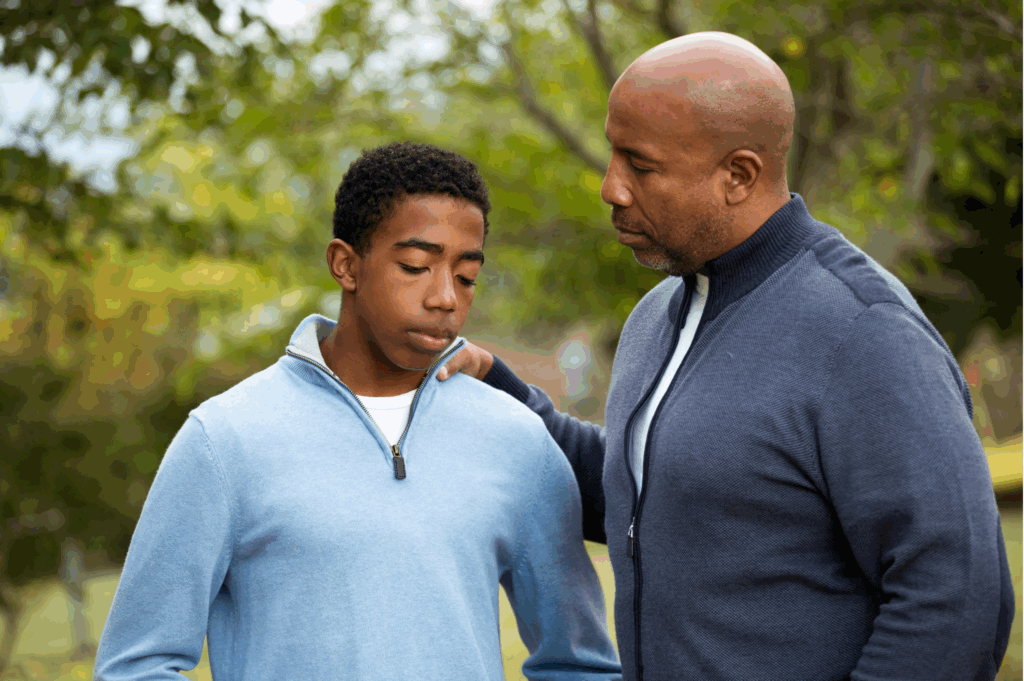
Recovery is more than healing from addiction—it’s also about rebuilding trust and forming new, healthy relationships that support your growth.
During treatment and long-term recovery, your relationships play a key role in your emotional well-being. While healing your body and mind, you may also find yourself reconnecting with family, forming new friendships, or even exploring romantic relationships again.
This guide will help you develop and maintain healthy relationships in recovery by covering everything from communication and boundaries to parenting and digital connection.
Why Healthy Relationships Matter in Recovery
Addiction can lead to isolation, conflict, or broken trust. But recovery is an opportunity to reconnect—with yourself and with others. The people you surround yourself with can either uplift you or trigger setbacks, so it’s essential to build a circle of support.
Tips for Building Healthy Relationships in Recovery
Surround Yourself with Positive Influences
Recovery offers a fresh start, and that includes relationships. You don’t have to navigate this journey alone—many people in treatment find comfort in connecting with peers who understand what they’re going through.
Supportive friendships can grow through:
- Group therapy and counseling
- Recovery apps like Sober Grid
- Forums like In the Rooms, Sober Recovery, or Addiction Tribe
- Activities like volunteering, exercise classes, exploring new hobbies or faith communities
Whether you’re rebuilding friendships or making new ones, focus on environments that align with your values and avoid high-risk situations that may trigger cravings.
Navigating the Digital World Wisely

The internet plays a major role in our day-to-day lives, from staying in touch with friends and family to exploring new communities. But in recovery, social media can be both a source of connection and a potential trigger. Rethinking how you interact with digital platforms is an important step toward maintaining a stable and supportive recovery environment.
Social platforms often show reminders of your past, including content from people or places associated with substance use. While being in recovery doesn’t mean you have to log off entirely, it does mean setting healthy boundaries. Take time to review who you’re connected with, adjust privacy settings, and unfollow or disconnect from accounts that don’t support your progress.
Used wisely, social media can become a tool for accountability, inspiration, and healing. Below are some pros and cons to help guide your approach.
Pros of Online Connection:
- Connecting with people who share your experiences and values
- Accessing recovery communities virtually
- Discovering recovery-related education and resources
- Reducing social anxiety while meeting new people
Cons to Watch Out For:
- Encountering people from your past with negative influence
- Exposure to triggering content or toxic interactions
- Online validation-seeking that impacts self-worth
- Becoming too reliant on virtual connection while avoiding in-person support
Be intentional about how you use digital platforms. Talk to your counselor about how to identify toxic online behaviors and replace them with healthy digital habits.
Romantic Relationships and Recovery
Recovery can stir up complex emotions around connection and vulnerability. If you’ve experienced unhealthy or codependent relationships in the past, you may feel hesitant about dating again. But for many, healthy romantic partnerships can be part of long-term recovery and personal growth.
If you’re ready to explore romantic relationships, keep in mind:
- Take it slow—emotional vulnerability takes time
- Look for honesty, support, and mutual respect
- Avoid codependent dynamics or partners who may enable risky behaviors
- If you’re dating someone also in recovery, be mindful of shared triggers or setbacks
There’s no one right way to approach romance during recovery—what matters most is how a relationship affects your stability and self-worth.
Rebuilding Family Relationships in Recovery
Family dynamics often shift in recovery. Some loved ones may need time to rebuild trust. Others may be eager to reconnect but unsure how.
Tips for healing family relationships:
- Take ownership of past actions and sincerely apologize
- Keep communication open and consistent
- Respect others’ healing timelines—they may need time too
- Explore family therapy to support group healing
- Focus on actions over promises
Studies show that family involvement increases engagement in recovery and improves long-term success. Many treatment centers offer family counseling or support groups as part of comprehensive care.
Managing Relationship Stress in Recovery
Not all relationships will survive the changes that recovery brings—and that’s okay. Whether it’s a romantic partner, friend, or relative, some connections may no longer align with your goals.
Separation and Divorce
Recovery often brings clarity. You may realize that certain relationships no longer support your growth. Whether you’re going through separation or divorce:
- Prioritize your emotional health and recovery
- Seek relationship counseling or therapy to gain insight and closure
- Lean on your recovery network and avoid isolating yourself
- Join peer groups that provide emotional support through life transitions
Even if a relationship doesn’t survive, you can move forward with tools and insight that support long-term emotional health.
Parenting and Co-Parenting During Recovery

Parenting is challenging in any circumstance—but doing so while managing your recovery journey adds a unique layer of complexity. Substance use disorder affects the entire family, and children often carry emotional and developmental burdens from that experience. As you begin to rebuild, your role as a parent also begins to transform.
Supporting your children’s healing while working on your own recovery can help rebuild trust, improve emotional stability, and create a more supportive household. This process takes time, patience, and consistency—but it’s possible, and it’s worth it.
When speaking with your child:
- Take ownership of your substance use and explain that it’s not their fault
- Be patient as you rebuild trust—it won’t happen overnight
- Keep your promises to avoid disappointment
- Offer sincere apologies to validate their feelings
- Focus on creating new, positive memories
- Involve a trusted family member during difficult conversations
Supportive parenting practices include:
- Being honest in age-appropriate ways about your recovery
- Creating stable routines and household rules
- Apologizing for past behaviors and making new memories
- Avoiding overcompensation or inconsistent discipline
- Seeking parenting support or case management when needed
If you’re a co-parent:
- Maintain respectful communication and focus on the child
- Avoid exposing your child to conflict or tension
- Use a mediator or third party if necessary to protect your recovery
Helpful mindsets for all parents in recovery:
- Define your family’s future and lead by example
- Move forward without letting fear define your parenting
- Rebuild emotional strength with honest communication
- Stay present and accessible for your child
Parenting and family support resources include:
Local and State initiatives – Many counties offer programs for parents and children impacted by addiction, including counseling, housing assistance, and childcare services
Learn to Cope – A peer-led support network for families affected by addiction and recovery
Project Know – An online education and resource center for families facing substance use disorder
Healthy Relationships Take Time
Healthy relationships in recovery aren’t built overnight. They require trust, boundaries, patience, and emotional resilience. Whether you’re reconnecting with family, building friendships, or exploring love again—your relationships should help you grow, not hold you back.
Support Your Journey with AppleGate Recovery
At AppleGate Recovery, we know that addiction affects more than just the individual—it impacts families, relationships, and entire support systems. That’s why our care is compassionate, personalized, and focused on healing all aspects of life.
We provide:
- Behavioral health support
- Resources for parenting, peer support, and more
You deserve meaningful, healthy relationships—and a recovery journey that makes space for them.

Contact AppleGate Recovery Today
If opioid addiction is impacting your life or the life of someone you care about, reach out to our treatment center. We are here to provide the support and care you need to take the first step toward recovery.
Call 888.488.5337
